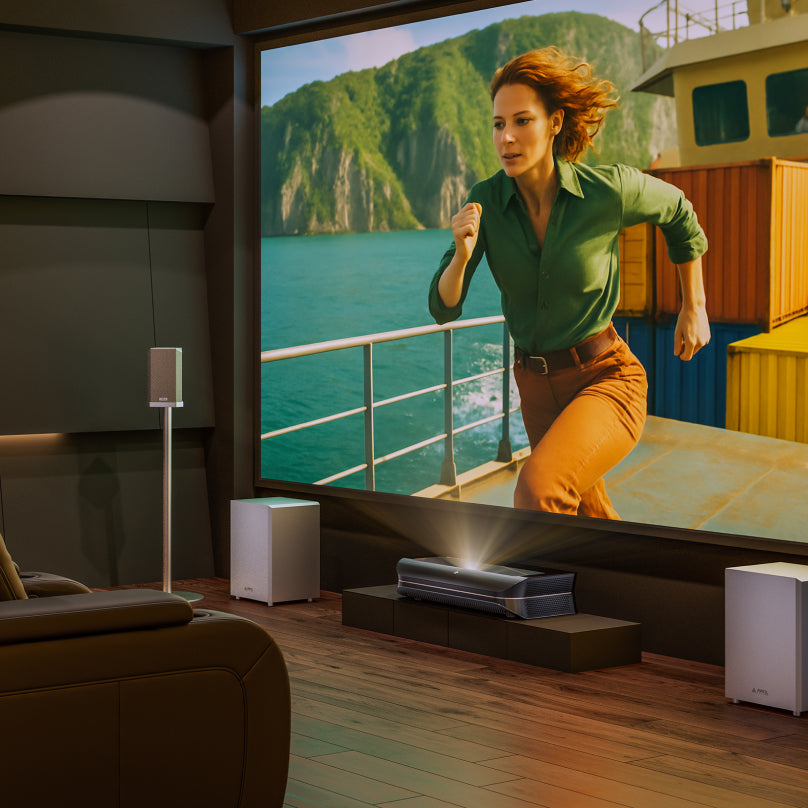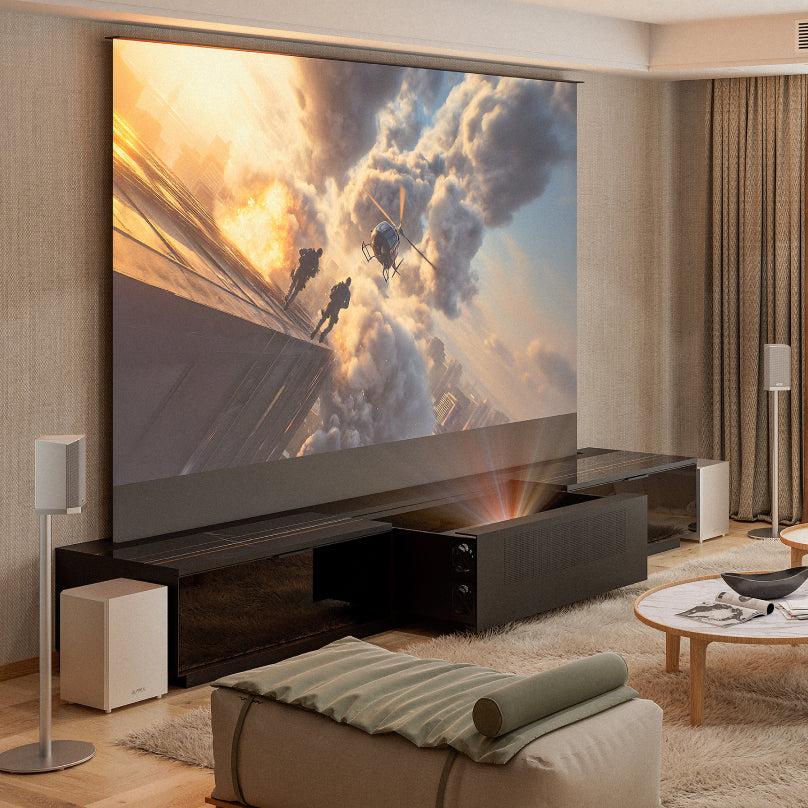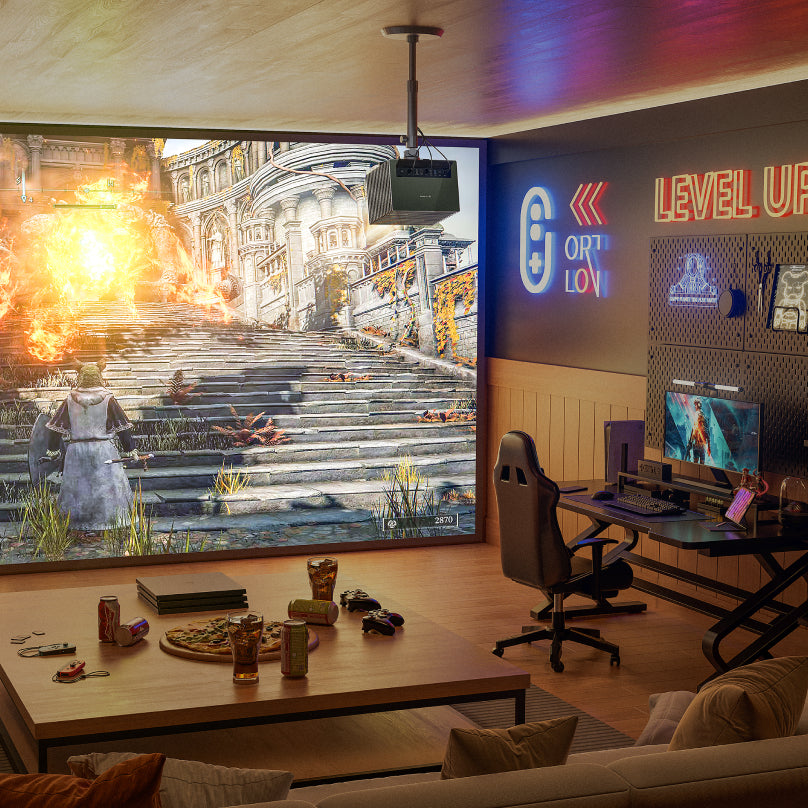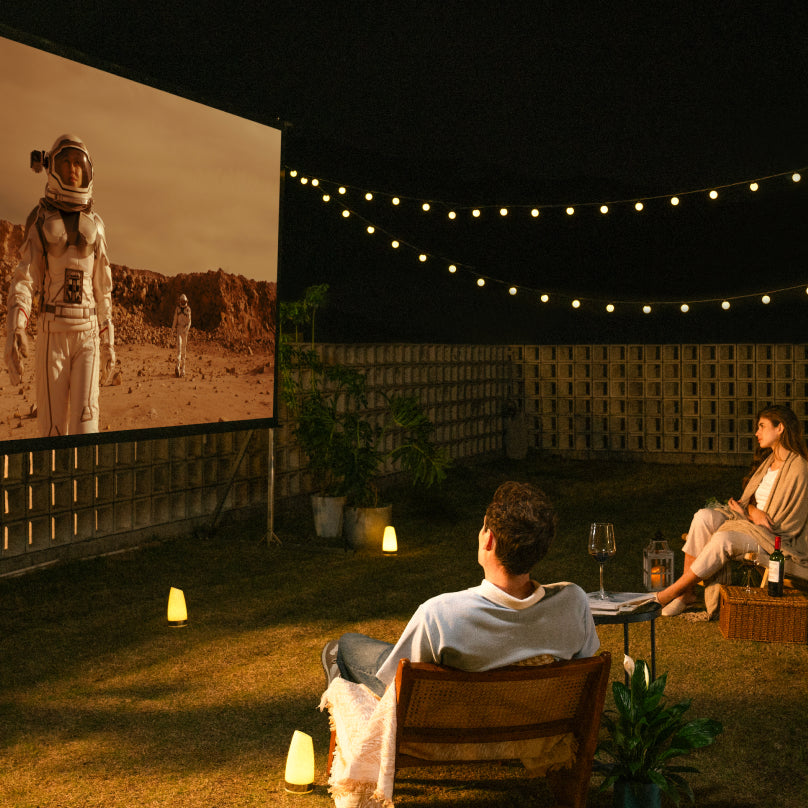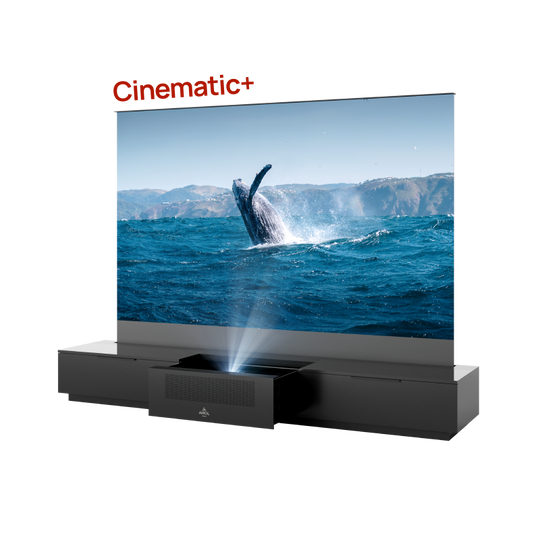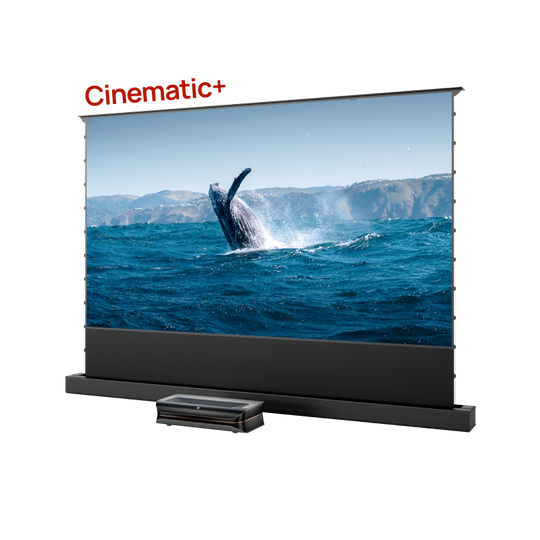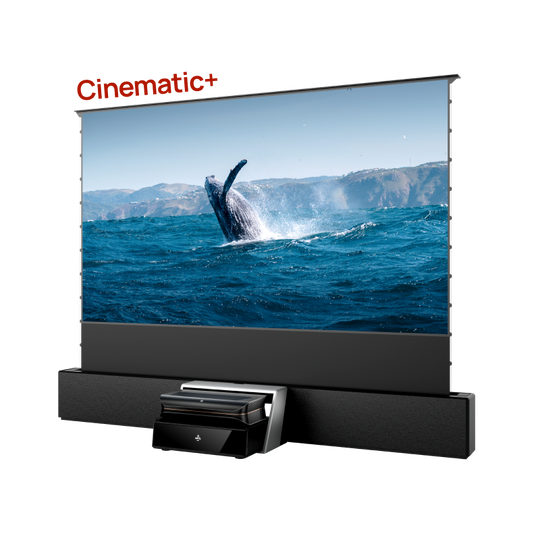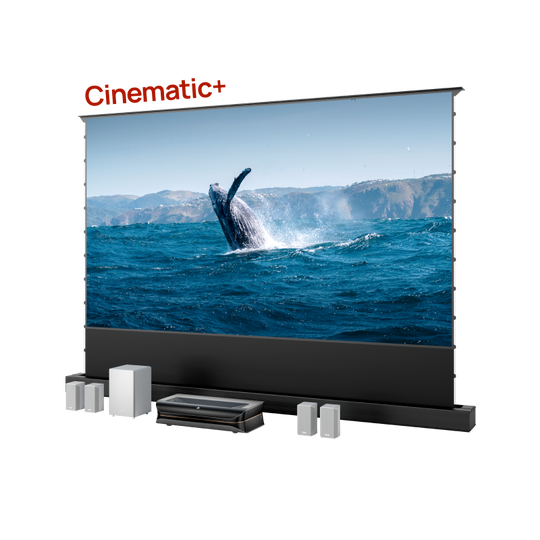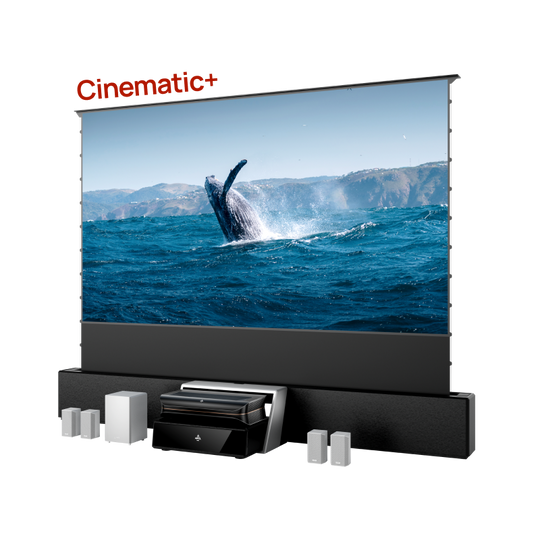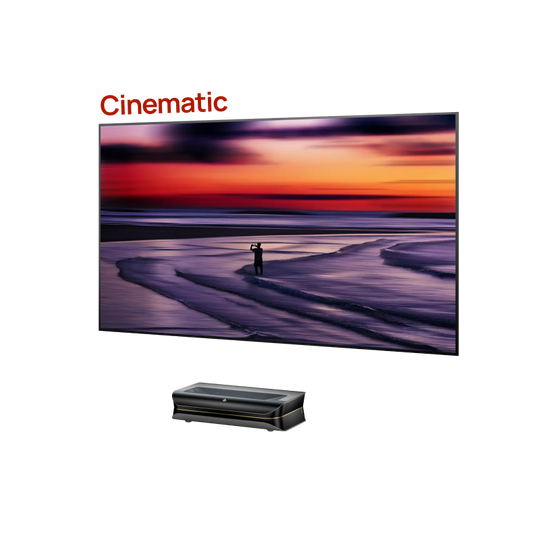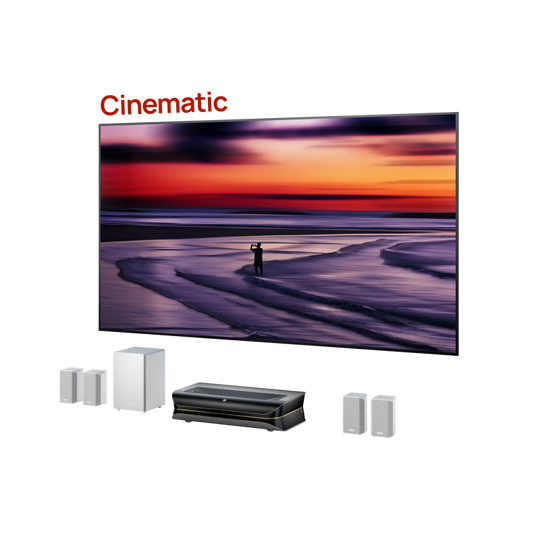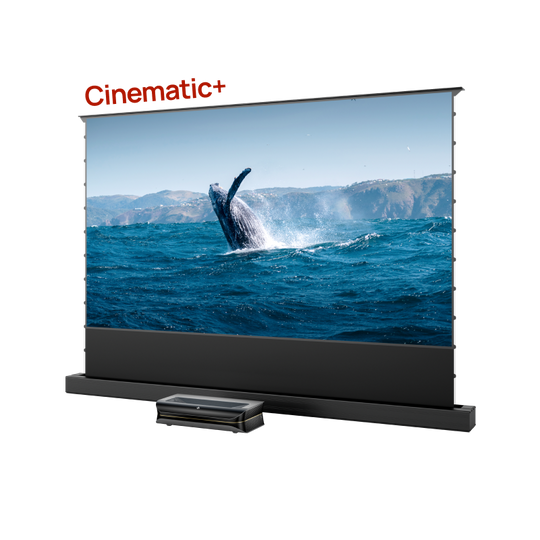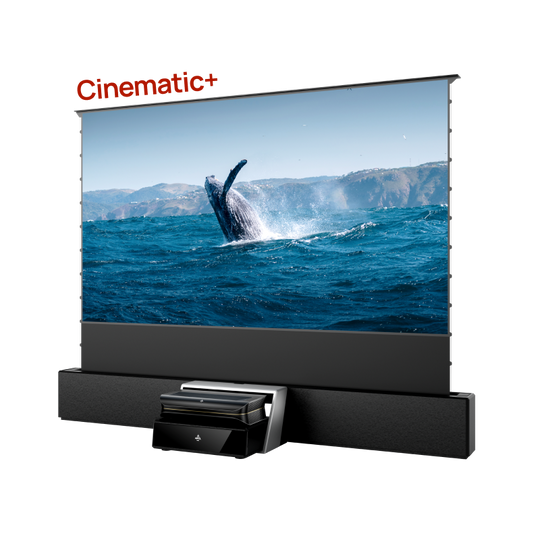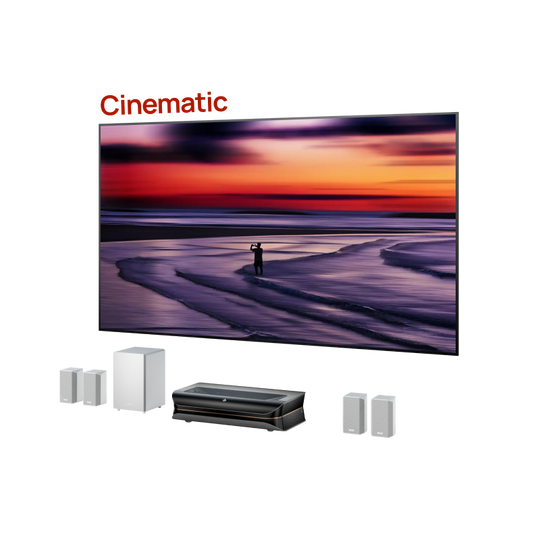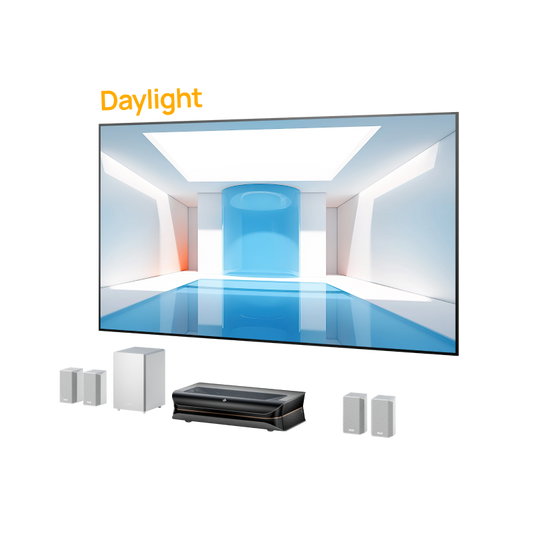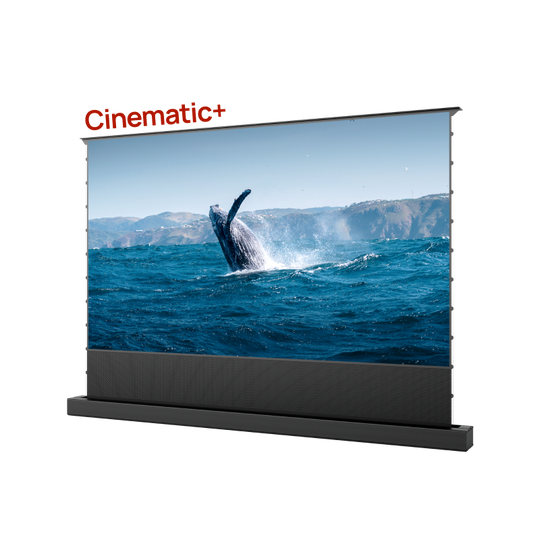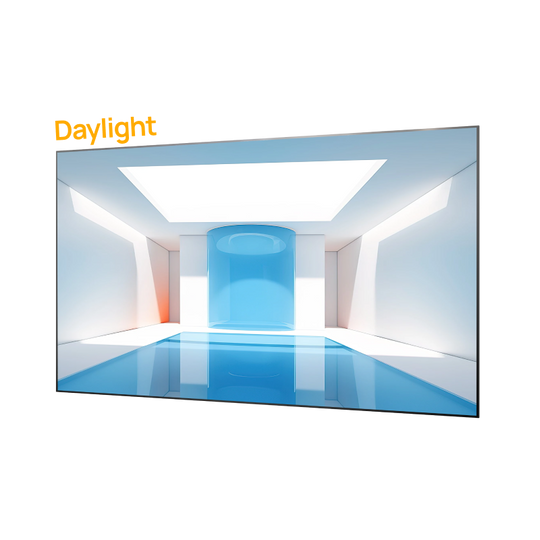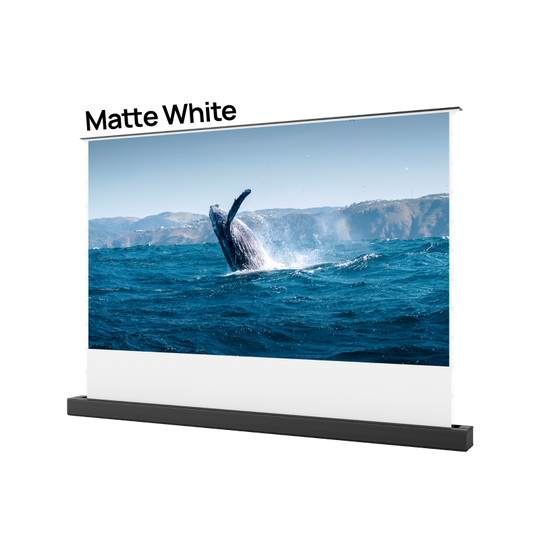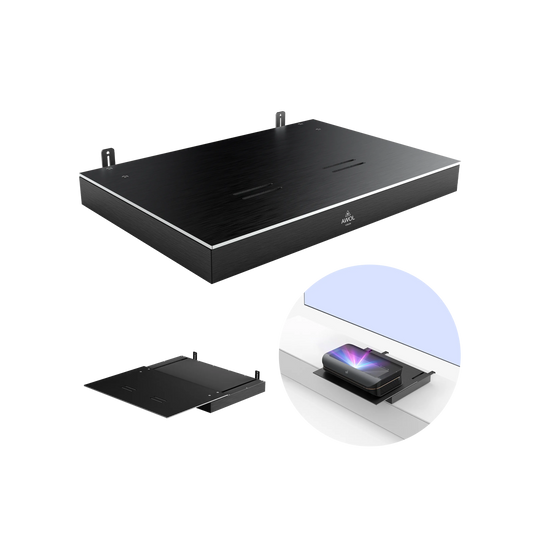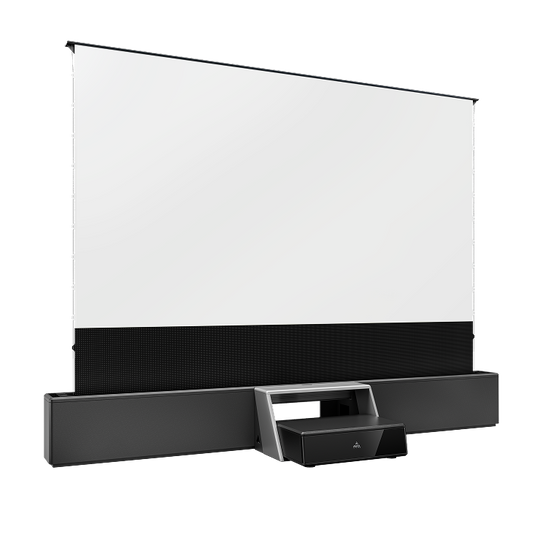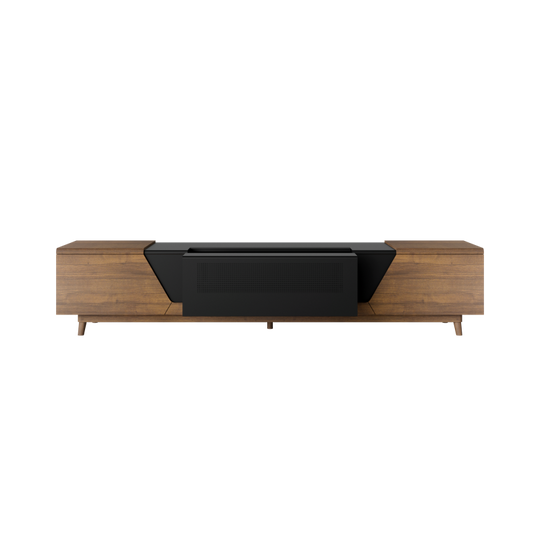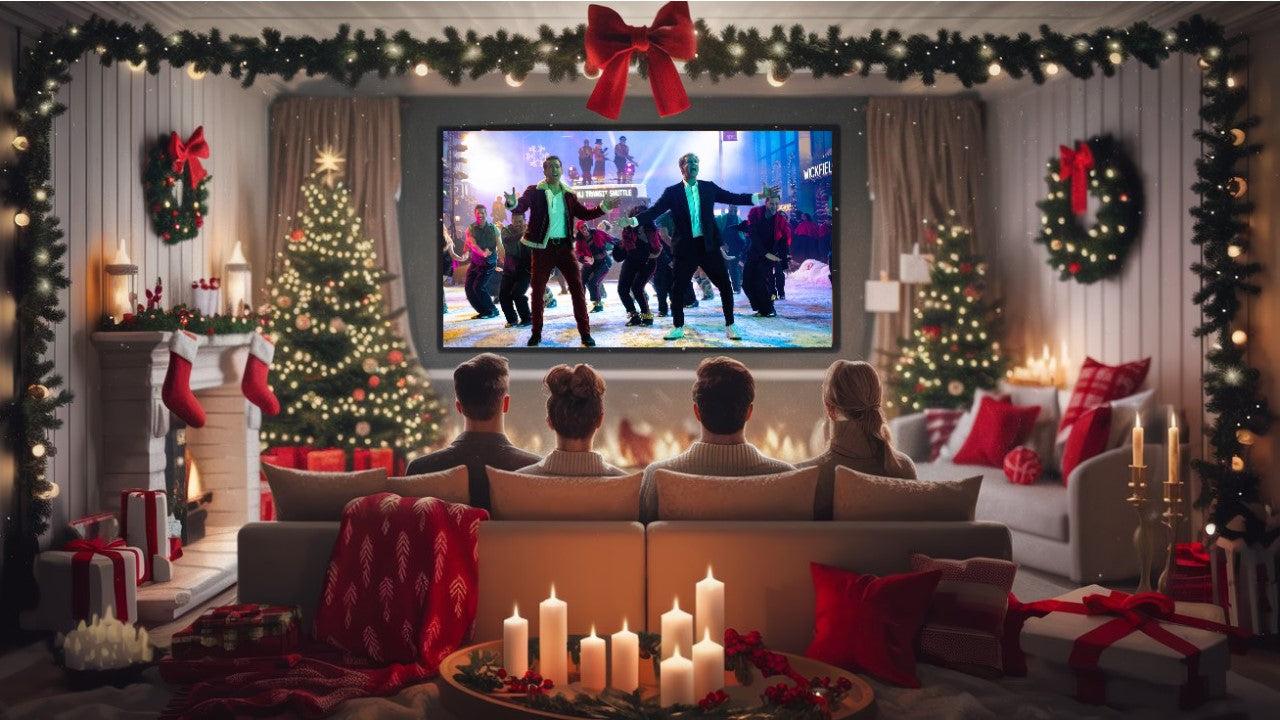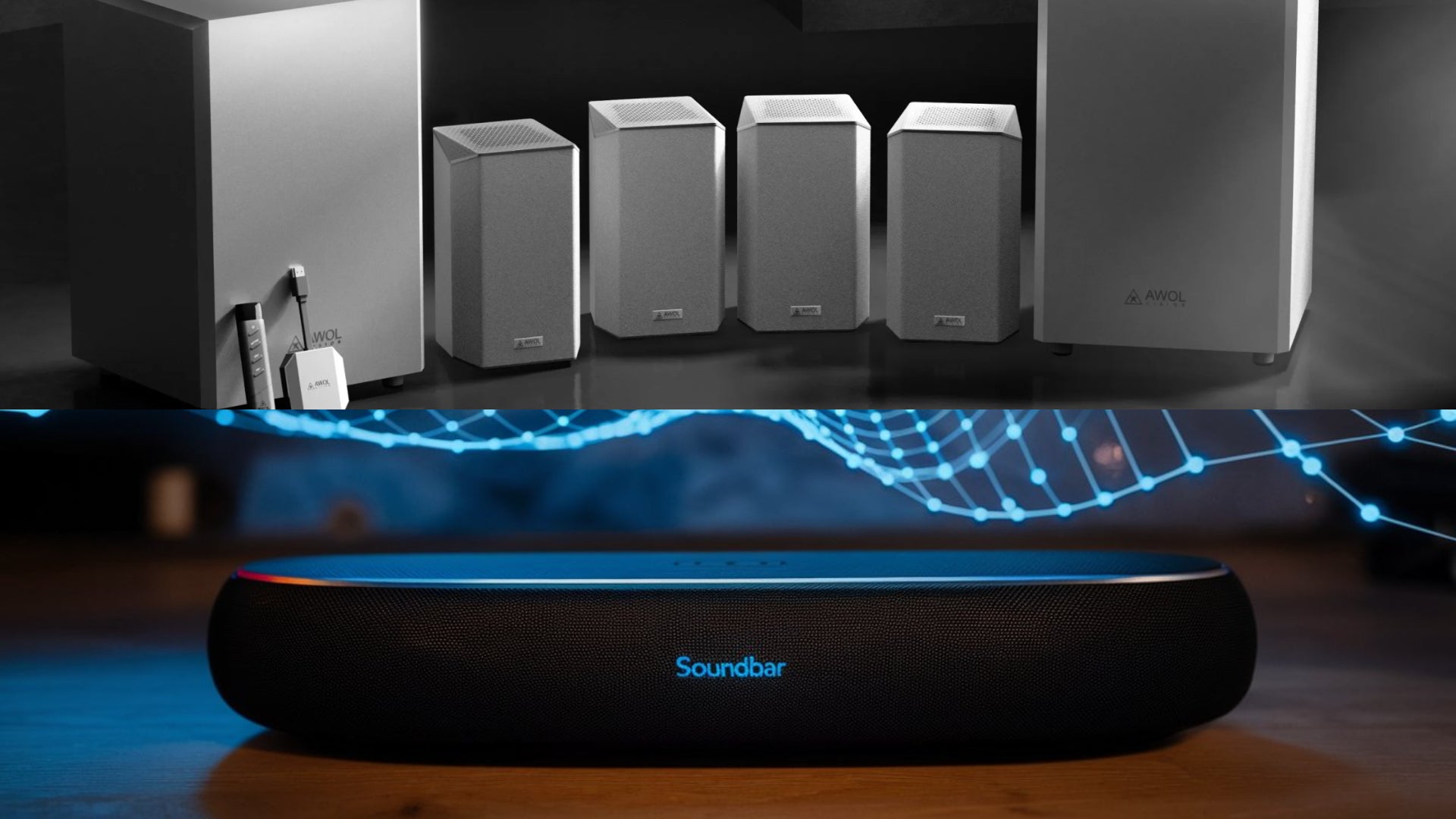Today, we will discuss the basic principles of projector resolution. This will help you choose the best projector for your viewing needs.
Achieving an inviting and engaging viewing experience heavily depends on getting the right projector resolution. Image clarity and detail can differ from one viewer to another. This is especially true for images shown on larger screens or in special room setups.
With the right resolution, you can improve visual quality to meet your needs. This applies to home theater projectors, gaming setups, or business presentations.
Understanding Projector Resolution Basics
Projector resolution refers to the number of pixels a projector shows on a screen. This affects the clarity and detail of the image.
The screen resolution gets better as the image size increases. This makes it harder to see the pixels in the image. This is important for images that people will look at from a short distance. Here is a table with some of the most used resolutions:

- SVGA (800x600) – Basic and cost-effective, SVGA is ideal for low-demand settings like simple presentations.
- XGA (1024x768) – Often found in office projectors, XGA offers better detail for standard business use.
- HD (1280x720) – A decent starting standard for HD images at best fit for light personal use.
- Full HD (1920x1080) – The Home digital video projector system gets Full HD because most digital content is lately shot in this format.
- 4K UHD (3840x2160) – 4k UHD is the best resolution for projector, and, as it is four times the resolution of full HD, it undoubtedly deserves equipment for a real cinema room with tons of details in images.
It is also important to understand what these technologies mean for different types of projectors, like WXGA and WUXGA. WXGA resolution (1280x800) is a common widescreen HD resolution. Teachers and professionals often use it in classrooms and business settings. WUXGA (1920x1200) provides even sharper quality for images and videos.
Factors to Consider When Choosing Resolution
1. Content Type: Different content types benefit from different resolutions. Movies and sports in a home theater setup thrive with Full HD or 4K UHD, which add immersive detail and sharpness. Gamers benefit from 4K resolution, particularly if they seek responsive graphics. HD or XGA is often sufficient and budget-friendly for presentations or document displays.
2. Room Lighting: Ambient light affects how well a resolution performs. In bright spaces, especially with ultra-short-throw (UST) projectors, high resolution and strong brightness keep images clear. Full HD or 4K can reveal more detail in darker environments, enhancing your viewing experience.
3. Screen Size and Viewing Distance: Higher resolutions like 4K work better on larger screens. They are best for seating that is closer to the screen, especially with UST projectors. This helps avoid pixelation. The HD resolution can often suffice when setting up a small screen for a close range. The relationship between screen size, distance, and resolution is crucial for optimal picture quality
4. Future-Proofing: As content quality improves, opting for a higher resolution like 4K can future-proof your setup. Full HD is great today, but 4K UHD is becoming the new standard. Investing in 4K can keep your projector relevant for years.

Recommended Resolutions for Different Needs
- Home Theater Use: For a great movie experience, 4K UHD or Full HD projectors offer clear images and details. They are perfect for movie nights or binge-watching.
- Gaming: Gamers will enjoy 4K projectors that provide clear graphics and low input lag. This ensures quick response times for a more immersive experience.
- Business or Classroom Use: HD or XGA resolutions offer a budget-friendly option. They provide clear images for presentations and educational videos in business or school settings.

High Resolution Projectors Recommendation
Each AWOL Vision projector balances resolution, brightness, and color accuracy to provide clear, engaging visuals across various settings.
- AWOL Vision LTV-3500 Pro: A home theater projector, the AWOL Vision LTV-3500 Pro comes with 4K UHD resolution alongside HDR capability for well-saturated colors with many details. It’s great for watching movies or sports and has a gratifying aspect.
- AWOL Vision LTV-2500: A projector for gamers, AWOL Vision LTV-2500 has a 4k resolution and a very low input lag, which means that fast-moving objects will be clear and without stuttering. This is perfect for anyone with gaming devices connected to a screen. It offers great graphics without any lag.
- AWOL Vision LTV-3000: Mid-range projectors promise the most exciting features. The AWOL Vision LTV-3000 has 4K UHD resolution and brightly captivating images. Thus, users can utilize it in home entertainment and business for effective PowerPoint presentations. This projector has HDR, and its great color performance makes it perfect for people who want bright images. It is also for those who do not want to spend too much on expensive projectors.
The projectors from the AWOL Vision line have features like resolution, brightness, and color accuracy. These features work together to create clear and stunning images in various settings.
Wrap Up for Choose the Right Projector Resolution
Understanding the appropriate resolution for a projector becomes vital in ensuring the audience enjoys the projected content. To choose the best resolution, consider the type of content, the lighting, the screen size, and the purpose of use. High-resolution projectors from AWOL Vision allow you to enjoy high-quality images. They can transform any space into a cinema, gaming area, or exhibition site.
